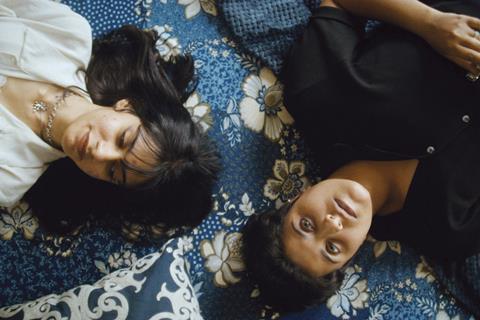Young Iraqis born after the 2003 US occupation try to carve out their own lives in a repressive Baghdad

Dir: Maja Tschumi. Switzerland/Iraq. 2024. 94mins
There’s a generation of young Iraqis, born around or just after the US-led occupation of Iraq in 2003, that has known nothing but war and unrest in their country. In 2019, a youth-led uprising demanded the overthrow of the post-2003 regime and a new non-sectarian, non-corrupt government. The authorities responded with brutal and disproportionate force: 787 people were killed.
An insightful account of what it is to be young in Iraq right now
Two survivors of the uprising, Mohammed al Khalili and Melak Madhi (aka Milo) are both subjects and creative collaborators on this impressive film, an arresting combination of front-line protest footage and revealing dramatic reconstructions. Through their bruised hopes and struggles for a better life, the film gives an insightful account of what it is to be young in Iraq right now.
The collaborative aspect is crucial for the success of the picture. Swiss director Maja Tschumi (whose first feature documentary was 2022’s Rotzloch, which follows four refugee men attempting to start new lives) allows her subjects to have agency and control over their own stories. We see what they choose to show us; their core issues are foregrounded. While this means that Western audiences might be left scratching their heads about certain aspects of contemporary Iraq – the Shi’a/Sunni division is barely touched upon for example, and the ‘Sadrist’ protest movement is documented but not explained – it gives the picture a fierce, compelling authenticity that should make it a buzzy title at further festivals. Audiences who connected with documentaries that captured the spirit of the Arab Spring protests, such as the Sundance prize-winning The Square, will find much to admire here.
The film is divided into three chapters, with the first, titled ’Hidden Battles’, following the magnetic and passionate Milo in dramatised scenes that capture her experiences. A committed feminist, Milo found a sense of purpose when she participated in the 2019 uprising. But her conservative family subsequently punished her for her involvement; she was locked up at home for a year and her clothes, possessions and – most importantly, her passport and identity papers – were burned. Crop-haired and boyish, Milo now dresses as a man, borrowing her brother’s clothes, to move around the city. Without the knowledge of her father, she works part time as a counsellor for other oppressed women. Her main comfort, while tensions within her family deepen, comes from her closeness with best friend Avin.
The second chapter, titled ’Confrontations’, is the story of photographer Al Khalili, who realised that his camera was his best weapon and spent six months living at the heart of the 2019 protest, in a tent city in Baghdad’s Tahrir Square. The footage he captured is extraordinary – kinetic, frantic, breathlessly intense. But it came at a cost: by the time Mohammed returned home, he had been physically injured and mentally traumatised (the extent of the latter is painfully revealed in a self-recorded interview that shows a young man bent out of shape and barely able to function).The front-line footage is complemented by the film’s use of sound, which is creative and atmospheric throughout, but adds considerably to the immersive power of this particular section of the story.
There is a contrast between the footage shot by Khalili and the approach to the cinematography adopted by Tschumi’s crew. Carefully framed and attuned to the very specific quality of light in Baghdad, there’s an almost painterly quality to the look of the rest of the film.
The final chapter, titled ’Decisions’, looks to the future for its characters. Al Khalili has begun to heal from his experiences and is marrying. But the fascination with protest draws him back, once again, when the Sadrists (supporters of Shi’a nationalist leader Muqtada al-Sadr) occupy parliament. Milo, meanwhile, has come to terms with the fact that she needs to leave the country to escape her family, and attempts to persuade Avin to join her. Ultimately, there is hope for all the film’s characters, but where that future will play out is another question entirely.
Production company: Filmgerberei GmbH
International sales: Cat & docs maelle@catndocs.com
Producers: Mohammed Alghadhban, Nadine Lüchinger
Screenplay: Maja Tschumi, Melak Madhi, Mohammed al Khalili
Cinematography: Silvio Berger, Mohammed al Khalili
Editing: Alex Bakri
Music: Manouk Roussyalian















![[L-R]: Amanda Villavieja, Laia Casanovas, Yasmina Praderas](https://d1nslcd7m2225b.cloudfront.net/Pictures/274x183/6/4/1/1471641_pxl_20251224_103354743_618426_crop.jpg)








